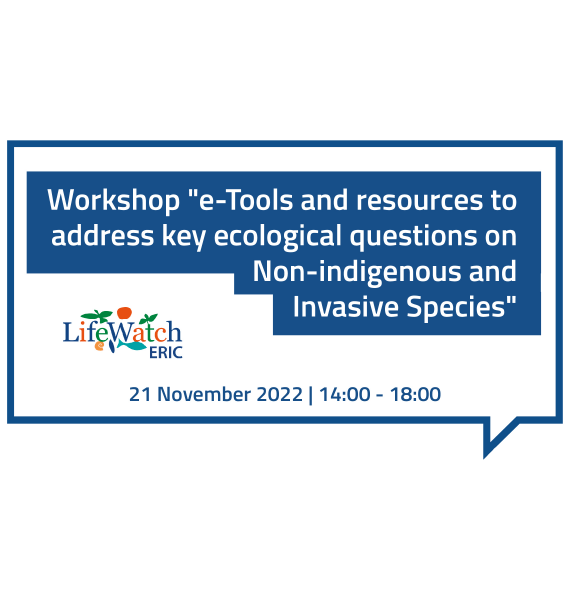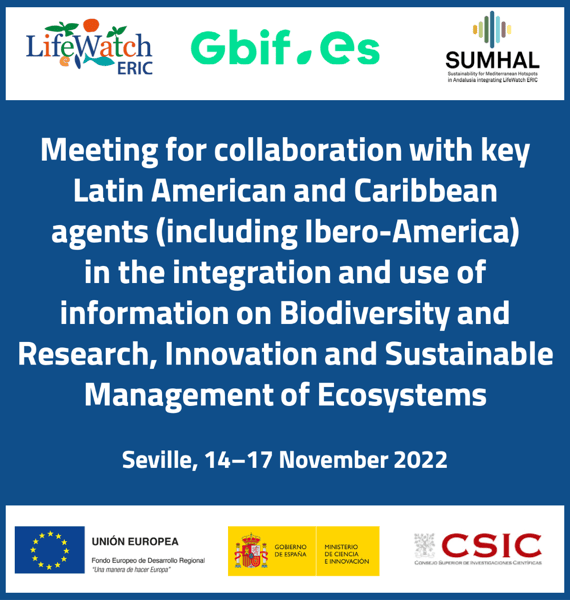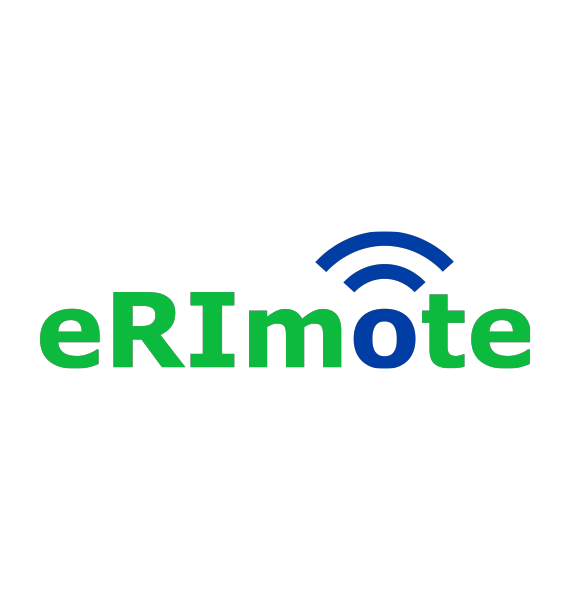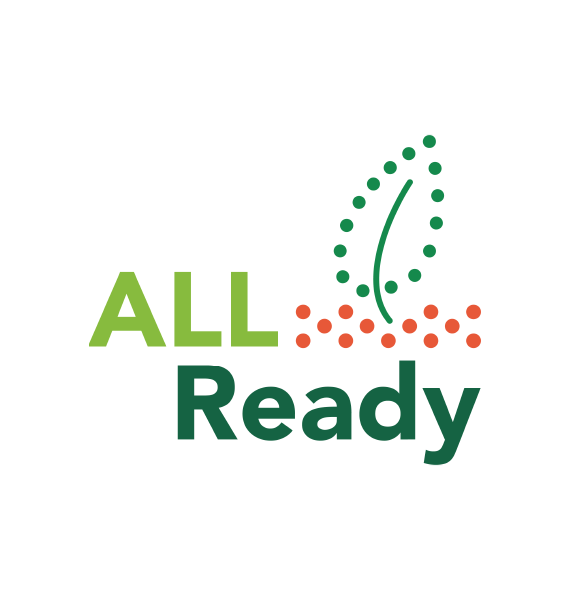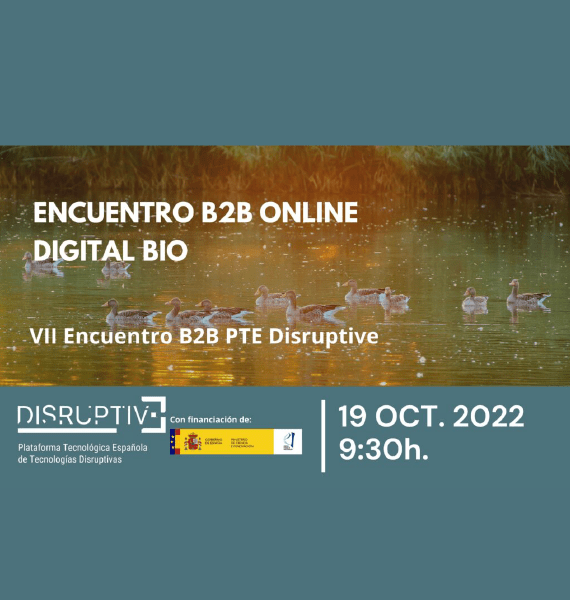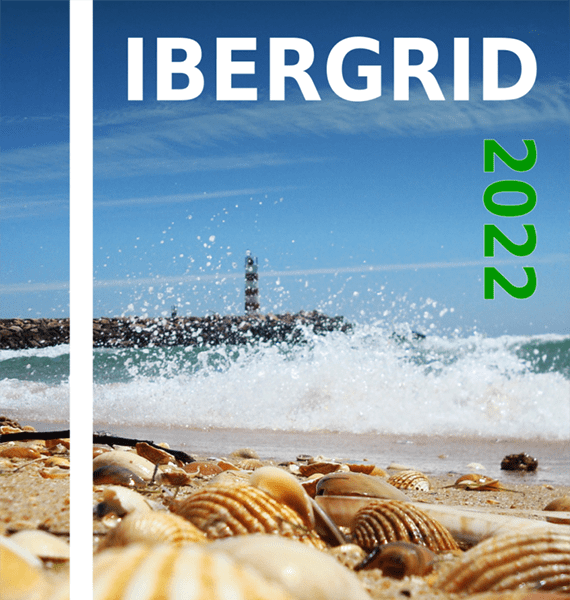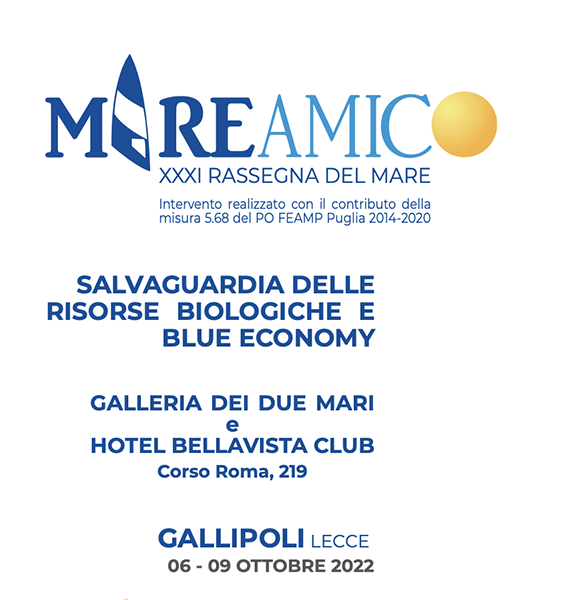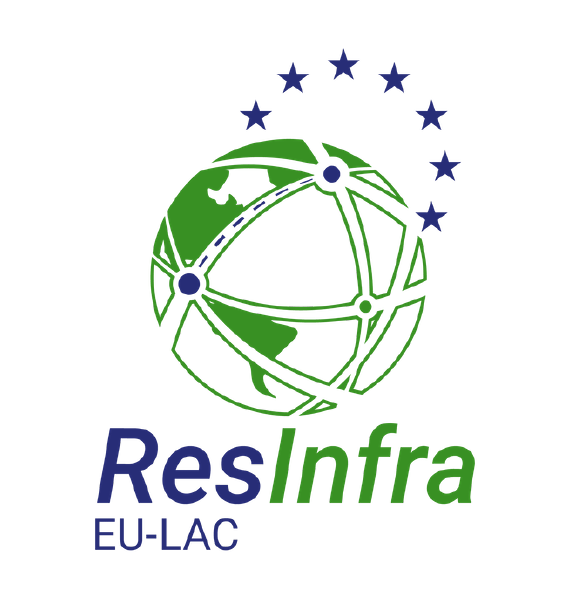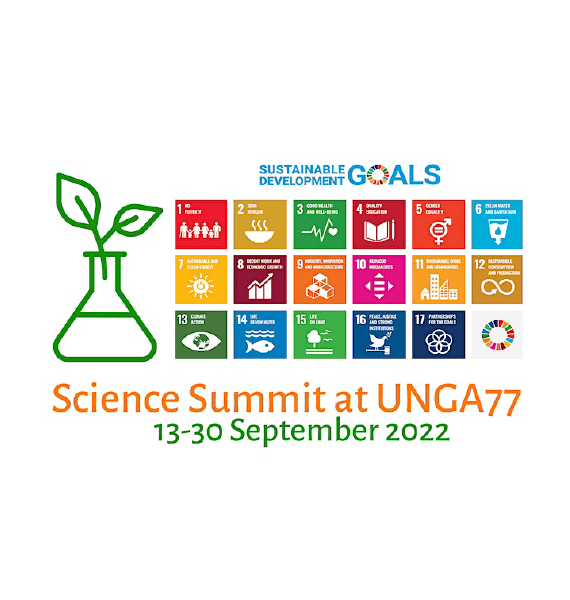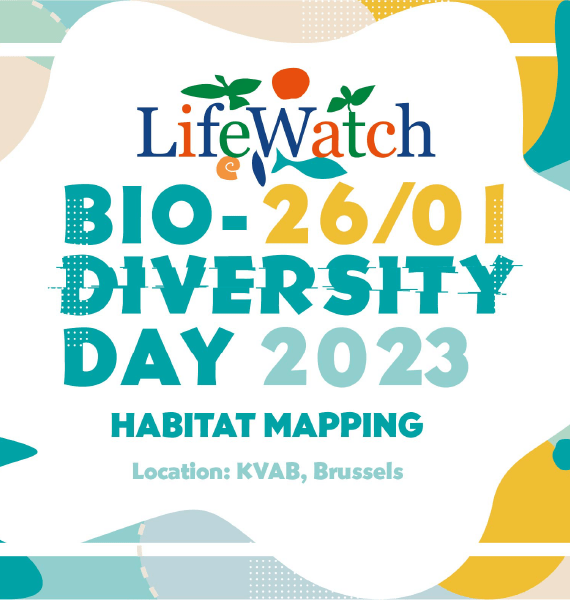Metz, France, 21 November 2022.
LifeWatch ERIC ICT staff, in collaboration with scientists already engaged in developing research activities on non-indigenous and invasive species using LifeWatch ERIC’s Virtual Research Environment facilities, is organising the 4-hour computer-based Workshop: “e-Tools and resources to address key ecological questions on Non-indigenous and Invasive Species” from 14:00-18:00 in Room 13.
Interested attendees will be trained to access and use the Virtual Research Environments from their personal computers. The hands-on session will be introduced by an interactive session to guide the attendees on their first approach to the VREs and related e-tools.
The workshop is organised in the framework of the SFE2-GfÖ-EEF joint meeting “Ecology & Evolution: New perspectives and societal challenges“, on 21-25 November 2022 in Metz. It is being organised by the LIEC (University of Lorraine, CNRS) and other labs in northeastern France working in the fields of ecology and evolution.
Click here for more information.
Workshop description
Non-indigenous and Invasive Species (NIS) are considered one of the major threats to the ecosystem functioning and one of the main drivers of biodiversity loss. Despite the advances in the understanding of introduction pathways, mechanisms of bio-invasions, and impacts of invasive species, the effective management and control of NIS still lag behind their spread.
For such reason, LifeWatch ERIC has developed e-science tools to assist researchers, stakeholders, and citizens in deepening knowledge and obtaining rapid responses to mitigate the risks and impacts of NIS in the terrestrial and aquatic domains.
This joint effort has resulted in the development of a series of ICT facilities and workflows to support scientists in running five case studies (CS) on NIS, tackling different key aspects, including:
- the evaluation of their trophic habits (CS 1);
- the early-detection of NIS invasion and spread, through standard monitoring procedures and metabarcoding (CS 2 & 3);
- the development of keystone NIS species dispersion scenarios for terrestrial Mediterranean ecosystems (CS 4);
- the EUNIS habitat and ecosystem vulnerability (CS 5).
The five case studies and workflows are embedded into Virtual Research Environments (VREs) that provide a series of web-services made available through a user-friendly interface and the datasets and services produced through the case studies are accessible through the LifeWatch ERIC catalogue.
The workshop aims at presenting the LifeWatch ERIC VREs and e-resources developed for NIS research. During the workshop, the scientific case study leaders, together with the LifeWatch ERIC ICT team, will introduce the aims and analytical tools (e.g. models, computing facilities) included in each workflow. The presentation of the case studies and web-services realised will be followed by a hands-on session where the attendees can access the VREs.
AGENDA
14:00-14:05: General introduction (10 mins)
Chairs:
Christos Arvanitidis – Chief Executive Officer, LifeWatch ERIC
Juan Miguel González-Aranda – Chief Technology Officer/ICT-Core Director, LifeWatch ERIC
Alberto Basset – Service Centre Director, LifeWatch ERIC
14:05-14:25: General introduction to Tesseract (15 mins)
LifeWatch ERIC ICT team presentation: Antonio José Sáenz-Albanés – LifeWatch ERIC
14:25-15:00: Case Study 1: Evaluation of NIS trophic habits – Crustaceans (35 mins)
Scientific leader presentation: Raffaele De Giorgi – University of Salento, LifeWatch ERIC Service Center
Hands-on session
Questions and discussion
15:00-15:35: Case Study 2: Early-detection of NIS invasion and spread through standard monitoring procedures and metabarcoding – ARMS (35 mins)
Scientific leader presentation: Katrina Exter – Flanders Marine Institute (VLIZ)
Hands-on session
Questions and discussion
15:35-16:10: Case Study 3: Development of keystone NIS species dispersion scenarios
for terrestrial Mediterranean ecosystems. – Ailanthus altissima (35 mins)
Scientific leader presentation: Carmela Marangi – Italian National Research Council (CNR), Institute for applied mathematics (IAC)
Hands-on session
Questions and discussion
16:10-16:30: Break (20 mins)
16:30-17:05: Case Study 4: The EUNIS habitat and ecosystem vulnerability. Biotope
(35 mins)
Scientific leader presentation: Julien Radoux (Catholic University of Louvain) and Heliana Teixeira (University of Aveiro)
Hands-on session
Questions and discussion
17:05-17: 40: LifeBlock (35 mins)
LifeWatch ERIC team presentation: Juan Miguel González-Aranda, Joaquín López-Lérida, and Ana Mellado-García (LifeWatch ERIC, ICT-Core)
Hands-on session
17:40-17:55: Essential Biodiversity Variables using Remote Sensing (15 mins)
Scientific leader presentation: Joris Timmermans – LifeWatch ERIC VLIC
Questions and discussion
17:55-18:00: Final Remarks and Conclusion (5 mins)
